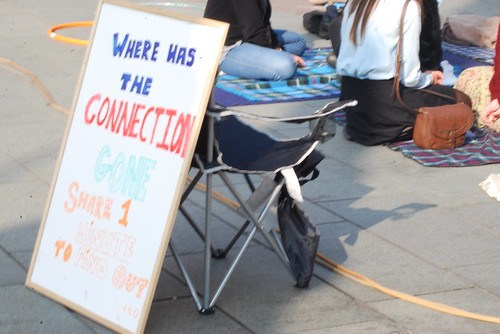
Had a really interesting conversation at a party about block and delete. It reminded me of previous friends who I had dated who would deal with the end of a relationship by blocking the other person. Luckily I haven’t been on the end of a block and delete too many times (only a couple to mind).
I do understand why people block and delete but I think its used too easily and quickly instead of dealing with conflict or be honest with your feelings with the other person. I feel like its almost in the same category/area/orbit as another blog post I wrote about simple answers to difficult questions. Rather than even try and work things out, just block them and delete their details. Its so easy (like swipe left and right?) This makes ghosting look positively fair as a result.
Forget it happened, ignore the past and ultimately not learn from it? In the 7 stages of a relationship breakup, there is something important about facing your partner and being honest in the healing process. Something about block and delete directly cuts across. I compare it to the way prisoners sometimes are forced to face their victims – Restorative Justice.
Face-to-face meetings between victim and perpetrator bring relief to both parties….
Restorative justice gives victims that chance to reframe the story and heal in the process
I get it, if you are shouting at me about someone whos taken it too far, they have become a pest, stalker or worst. It so much easier to just block them and forget them. But I say that ease comes at a high cost over all. I imagine long term use of block could lead to changes in the blocker or growing resentment from those blocked (wish there was research on this)
I tried to use the example of last years Black Mirror White Christmas to start to illustrate the problem with blocking.
I got blocked once, by @Lord_Sugar as it happens. I’m not sure why, maybe he saw me as a threat, in business. It wasn’t actually too upsetting, but then I wasn’t in a relationship with him – hardly knew him at all, to be honest. And he only blocked me on Twitter, not in real life, as people can do here sometime in the future, in Charlie Brooker’s Black Mirror: White Christmas (Channel 4). So they can’t see you or hear you, nor you them: you’re both just muffled silhouettes, digital ghosts. That’s what happens to poor Joe (Rafe Spall).
Unfortunately the person I was talking to at the party had not seen it before. But this really hits the point I think I’m circling.
Brooker’s drama urges caution here and elsewhere in White Christmas. ‘Block’ someone social media-style in real life and you end the conversation. Any potential for redemption or growth ends with it. These are real people we’re dealing with, they’re not disposable.
Human feelings and relationships are messy and using a binary system of block, feels like hitting a nail with a sledgehammer way to initially end a relationship. (I say initially, because if they are not reasonable or abusive, I totally get the block.)
I guess I’m calling for more of a human approach to the way we think and end relationships. Without that, we could end up in the middle of a black mirror episode for real.
White Christmas’ nightmarish tales of isolation might be dark, but they show sage concern about the kind of world we’re building for ourselves. They ask us to consider the humanity of how we treat people online and in the real world. An extreme reflection it might be, but underneath it all, Black Mirror may well have the most charitable heart of any of this year’s seasonal specials.
https://twitter.com/Sagittarius_ht/status/683407475794509824
Charlie Brooker had this to say when asked about White Christmas’ blocking plot point and would he block someone…
I think people do that, don’t they, when they’re commuting? If I sit on the tube I put headphones in and I stare at a book or anywhere but another human being. I think when you’re commuting you just do it psychologically to get through the day in a city.
In everyday life I think it would be really destructive, that’s kind of what happens. We can’t say too much about the story but [to Rafe] you’re involved in a blocking incident. I think there’s no way back. If you were to block someone, the conversation has ended, it’s not like you can build bridges. I don’t know that I would block anyone particularly in person. I’m on Twitter, but I don’t tend to block people unless they’re just unrelentingly unpleasant.
This ties in the alone together, ambient intimacy and human contact posts.. Hopefully this makes people think before they block and delete?



















